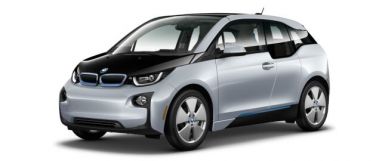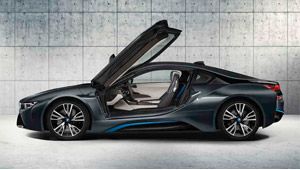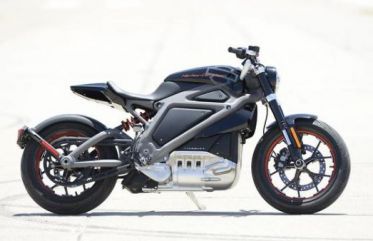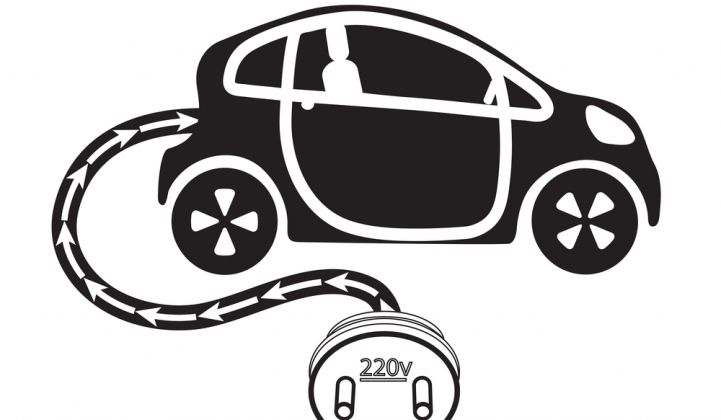Tesla is the marque in many automaker's sights, just as Tesla takes aim at BMW and other automakers. And since Tesla's plan is to build a lithium-ion battery factory with a larger capacity than today's entire global lithium-ion production capacity, the company is also one of the potential big players in the race to distributed storage and battery-based grid support services.
Here's the recent EV news.
$30 million more in venture capital for electric bus builder Proterra
Perhaps the electric vehicle tipping point will come from slow, sensible buses instead of sleek EV sedans.
Proterra, a maker of electric municipal buses, raised $30 million in fourth-round funding co-led by KPCB and GM Ventures, according to a press release. The firm has raised a total of more than $180 million in VC funding from investors including Hennessey Capital, NMT Capital, Mitsui & Co. Global Investment, 88 Green Ventures and Vision Ridge Partners. "Another $10 million in funding is expected to close within the coming weeks" from Edison Energy and Constellation Technology Ventures, the VC arm of Exelon, according to the firm.
Buses drive fixed routes at moderate speeds, and most bus routes are less than 30 miles, so they're an ideal application for electric vehicles. The relatively predictable short distances traveled allows Proterra to minimize the size of the battery pack, so the vehicles use battery packs in the 54-kilowatt-hour to 72-kilowatt-hour range. As a point of reference, the Tesla Model S has an 85 kilowatt-hour pack.
When we last reported on the firm, Proterra's buses were priced higher (at about $900,000 per unit) compared to conventional buses (at about $500,000) but the EV buses save $50,000 per year in diesel costs.
Motiv Power raises $7.3 million for electrifying trucks and buses
Motiv Power Systems raised $7.3 million in a round led by Colorado’s Magness Investment Group for an electric bus, albeit of the school bus variety. Motiv supplies a power train control system that can electrify a truck or bus chassis with any number of commercially available battery packs and motors. It's sort of a drop-in replacement called a "ship-through modification," akin to a CNG modification. Commercial truck and bus builders can use it to build all-electric box trucks, refrigerated trucks, utility/service trucks, shuttle buses, school buses and delivery vehicles.
As GTM's Katie Tweed reported, "The buses cost about twice as much as a comparable gas bus, but cost one-eighth as much to fuel and one-third as much to maintain,” according to Jim Castelaz, CEO of Motiv, who added, “Over the life of a school bus, two to three times the cost of the vehicle is spent on fuel and maintenance."
BMW i3: "The second-best electric car that money can buy"
BMW's electric vehicle is now available in the U.S.
An investor in the automotive sector has noted that BMW is "being disrupted by Tesla, no question." He added that a significant proportion of the $3 billion of Tesla's recent revenue would otherwise have belonged to BMW.
BMW has an issue that Tesla doesn't, however: BMW has to ensure that it doesn't cannibalize its own 3-series sales. And that means that its EV, the i3 sub-brand, has to fill a different niche than its 3 Series.
The reviewer at ExtremeTech wrote that "driving the i3 feels sportier than every other non-Tesla EV I’ve driven, and it’s quicker than the Leaf-Focus Electric genre," but added that the car "is not a sports sedan. You’re quickly aware that every time you stomp on the throttle, click on the seat heaters, or crank up the air conditioning, driving range suffers. The skinny 70-series tires are optimized for economy. But, oh, yes, when you step hard on the throttle, the i3 is as quick from rest as most any car you’ve ever owned other than, say, a twin-turbo gas-engine Bimmer. 0-60 mph takes about 7 seconds."
The fully equipped city car with a 22-kilowatt-hour battery pack and approximate 100-mile range will cost about $40,000 after a $7,500 government rebate.
The reviewer at Fortune magazine wrote that the car "can go 0 to 60 mph in 7.2 seconds with a top speed of 93 -- more than enough for any daily driver," adding, "Perhaps what most impressed me about the i3 was the roomy interior, which the company says has about the same amount of space as its 3 Series." Fortune concluded: "Despite the i3’s boxy style -- you’ll either love it or hate it -- it is definitely a BMW."
A new i3 owner blogs about his experience with the car here.
And be on the lookout for the 3-cylinder turbo, plug-in hybrid, 357-horsepower BMW i8 coming in July with a starting price tag of $135,700.
BMW's i3 electric vehicle

BMW's i8 3-cylinder turbo, plug-in hybrid

Electric Harley-Davidson?
A tipping point of sorts has been reached if Harley-Davidson is even considering adding an EV to its lineup. The 52-mile-range LiveWire is currently limited to a small fleet of lithium-ion-powered prototypes as the company gauges public reaction.
The OC Register's motorcycle expert gave the bike an overwhelmingly positive review.

Boston-Power looking to raise $250 million to compete with Elon Musk's Giga factory
The Wall Street Journal's Yuliya Chernova reported earlier this month that privately held lithium-ion battery maker Boston-Power is looking to raise $250M "to compete with Elon Musk." Sonny Wu, Boston-Power’s chairman, confirmed the firm's fundraising and spoke of an eventual IPO in the U.S.
Boston-Power was VC-funded in the U.S. but has since moved the bulk of its operations to China. The startup raised more than $100 million from GSR Ventures, Oak Investment Partners and Foundation Asset Management.
When we last reported on Boston-Power, the firm was supplying battery systems to Beijing Electric Vehicle, the electric vehicle delivery arm of Beijing Automotive Industry Company.



